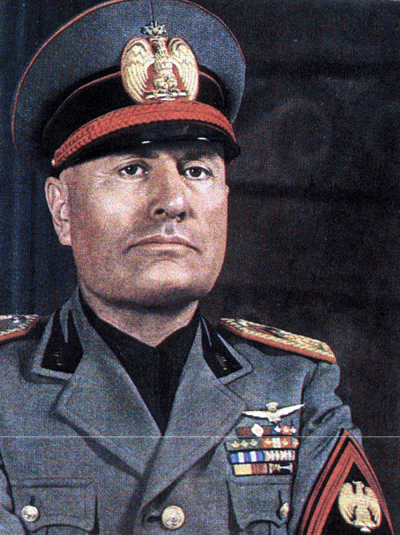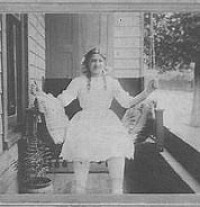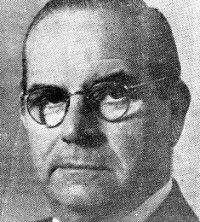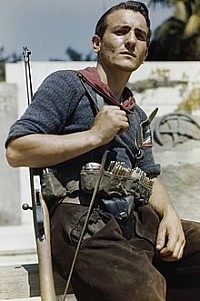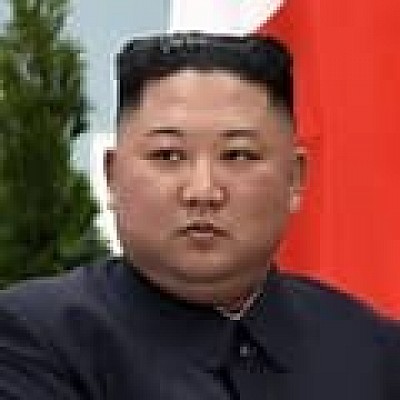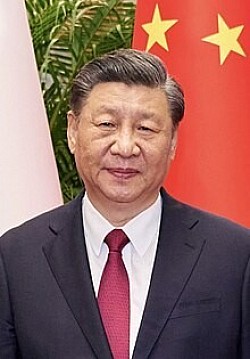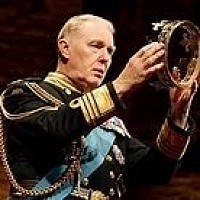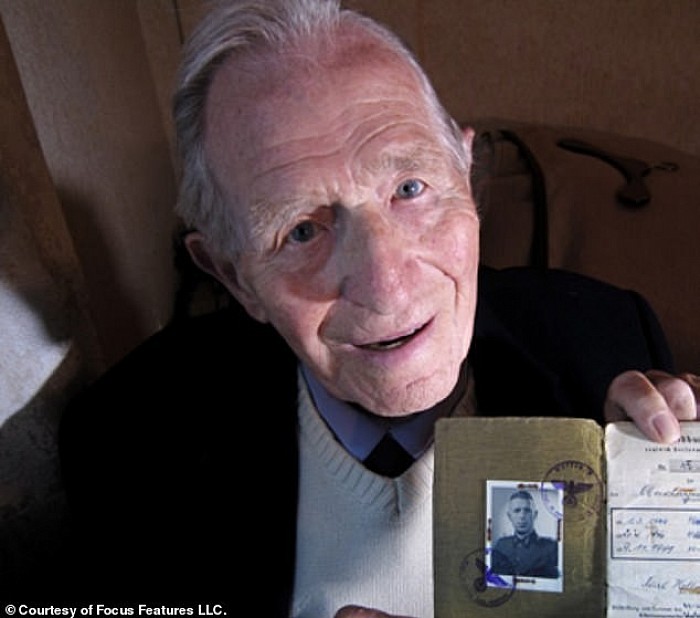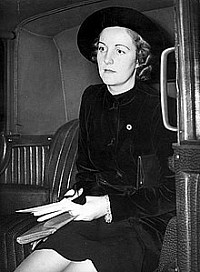Welcome to the Hitler's Fate:
Paperwork:
I "Adolf Hitler" disbands Hitler Party with the Hitler List: List of Adolf Hitler's personal staff - Wikipedia
German surrender scene described - UPI Archives
- Gerhard Wagner = Karis Hitler
- Christian Wirth - Bruce Beck Hitler
- Paul Wegener - Paul McIntyre
-
Otto Wagener- Stabschef of the Sturmabteilung surrenders Germany to Chancellor Ettenne Paris de la France el Coupe
BIRTH 17 Mar 1898 Harrisburg, Dauphin County, Pennsylvania, USA DEATH 17 Sep 1953 (aged 55) Harrisburg, Dauphin County, PA
Mrs. Gertrude M. Beck, 55, of 344 S. 13th St., died at her home yesterday. She was the widow of Aaron Beck.
Surviving are a son, Aaron S. Beck, Jr., Harrisburg R. D. 1; two daughters, Mrs. Frank Egresits, Middletown and Miss Delores J. Beck, at home; sisters, Mrs. Catherine E. Taggart, Harrisburg and Mrs. Clayton Warner, Harrisburg R. D. 3; three brothers, Leroy Beil and Clarence Beil, both of Harrisburg, and Wilbur Beil, Camp Hill and five grandchildren.
Funeral services will be held Monday at 10:30 a.m. at the funeral home at 1334 N. Second St., with the Rev. Dr. A. M. Billman, pastor of Fourth Evangelical and Reformed Church, officiating. Burial will be in East Harrisburg Cemetery. Friends may visit the funeral home Sunday from 7 to 9 p.m.
[The Evening News - September 18, 1953]
The Lawyer of Nazi Party & Abortianist
Heinz Auerswald (26 July 1908 – 5 December 1970) was a German lawyer and member of the SS in Nazi Germany, which he joined in 1933. In 1937 he became member of the NSDAP.[1]
Early years[edit]
Heinz Auerswald was born on 26 July 1908 in Berlin He spent his youth with his mother and relatives in the countryside. He attended elementary school and upper secondary school in Berlin, before graduating in 1927. He then worked for 3 years at Knorr-Bremse in Berlin before starting law school, graduating with a doctorate.
Career in the NSDAP[edit]17 November 1941 Public announcement of the execution of eight Jewish dwellers of the Warsaw ghetto for having trespassed its boundaries, signed by Heinz Auerswald
On 7 June 1933 he became a member of the SS. He was the German Commissioner of the Warsaw Ghetto ("Kommissar für den jüdischen Wohnbezirk"), from April 1941 to November 1942. While the Nazis depicted themselves as administrators and managers pursuing a would-be "productionalist policy of economic independence providing the Ghetto with essential materials for its inhabitants continual survival until the adoption of the final solution", in reality they were already pursuing the Nazi goal of exterminating European Jewry through starvation, exposure and diseases induced by abysmal living conditions.
"Overcrowding and food shortages led to an extremely high mortality rate in the ghetto. Almost 30 percent of the population of Warsaw was packed into 2.4 percent of the city's area. The Germans set a food ration for Jews at just 181 calories a day. By August 1941, more than 5,000 people a month succumbed to starvation and disease."[2] At least one order given by Auerswald for the execution of Jews who had escaped the Ghetto from 17 October 1941, is extant. The mass deportations of Jews from the Ghetto to the Treblinka extermination camp on 22 July 1942 began while Auerswald was the Ghetto Commissioner.
Later life[edit]
After the war, Auerswald was active as a lawyer in Düsseldorf. A late preliminary investigation into his participation in Nazi war crimes was initiated by the public prosecution in Dortmund, which was discontinued due to Auerswald's death in 1970.[1]
American Burgerbraukeller
The Bürgerbräukeller ([ˈbʏʁ.ɡɐ.bʁɔʏ̯.ˌkɛ.lɐ]; "citizen brew cellar") was a large beer hall in Munich, Germany. Opened in 1885, it was one of the largest beer halls of the Bürgerliches Brauhaus. After Bürgerliches merged with Löwenbräu in 1921, the hall was transferred to that company.[1]
The Bürgerbräukeller was where Adolf Hitler launched the Beer Hall Putsch in November 1923 and where he announced the re-establishment of the Nazi Party in February 1925. In 1939, the beer hall was the site of an attempted assassination of Hitler and other Nazi leaders by Georg Elser. It survived aerial bombing in World War II.
The Bürgerbräukeller was demolished in 1979,[2] and the Gasteig complex was built on its site.
Location[edit]A meeting of the Nazi Party at the Bürgerbräukeller beer hall, circa 1923
The Bürgerbräukeller was located in the Haidhausen district of Munich on the east side of the Isar River. The entrance was from Rosenheimer Street, with rear access from Keller Street. Since 1980, the site has been redeveloped with the construction of the Gasteig Culture Centre, the Hilton Munich City Hotel and the headquarters of GEMA.[3]
Description[edit]
As early as the 16th century, brewers in Bavaria would collect the barrels of beer near the end of the brewing season and stock them in specially developed cellars for the summer. By the 18th century, brewers discovered they could make a greater profit if they opened their garden-topped cellars to the public and served the beer on site.[4] In the 20th century, the Bürgerbräukeller had both a cellar and a beer garden, as well as the grand hall for indoor functions.[2]
The grand hall was a rectangular space accommodating up to 3,000 people, though less in full dining mode. Freestanding pillars on either side of the hall supported narrow galleries and the roof. The load-bearing walls and the internal pillars with classical capitals were plastered brickwork. A decorative plastered ceiling, divided into bays with three rows of chandeliers, concealed steel beams supporting the timber roof structure.
Nazi connection[edit]Invitation to a "re-establishment" of the Nazi party with Adolf Hitler as an orator, 27 February 1925, Munich, BürgerbräukellerBürgerbräukeller after the 1939 assassination attempt
From 1920 to 1923, the Bürgerbräukeller was one of the main gathering places of the Nazi Party. There, on 8 November 1923, Adolf Hitler launched the Beer Hall Putsch. After Hitler seized power in 1933, he commemorated each anniversary on the night of 8 November with an address to the Alte Kämpfer (Old Fighters) in the great hall of the Bürgerbräukeller. The following day, a re-enactment was conducted of the march through the streets of Munich from the Bürgerbräukeller to Königsplatz. The event climaxed with a ceremony at the Feldherrnhalle to revere the 16 'blood martyrs' of the Beer Hall Putsch.[5]
The Bürgerbräukeller was also the site Hitler chose to publicly announce the re-establishment of the Nazi Party on 27 February 1925, some ten weeks after his release from Landsberg prison. With a sense of theater and symbolism, he returned in triumph to the scene of his failed putsch of sixteen months earlier. Three hours before his 8:00 p.m. speech, the hall was filled to capacity with 3,000 attendees and 2,000 more were turned away. Hitler spoke for two hours and reclaimed leadership of the Nazi movement, unifying the feuding factions that had led the fragmented organization while he was incarcerated.[6]
A Beer Hall Putsch march leaving the Bürgerbräukeller
In 1939, a time bomb concealed inside a pillar in the Bürgerbräukeller was set to go off during Hitler's Beer Hall Putsch address on 8 November. The bomb exploded, killing eight people and injuring 57,[7] but Hitler had cut short his speech and had already left. An idealist, Georg Elser, was arrested, imprisoned for 5 1⁄2 years, and executed shortly before the end of the war.[5]
The building suffered severe structural damage from Elser's bomb, and in subsequent years, 1940–1943, the Beer Hall Putsch address was held at the Löwenbräukeller at Stiglmaierplatz,[8] and in 1944 at the Circus Krone Building.
During World War II[edit]
After the attempted assassination of Hitler on 8 November 1939, repairs began on the Bürgerbräukeller with the intention of repairing the building to its original state. Due to the shortage of materials, work was never completed. During the Allied aerial bombing of Munich, a single bomb hit the hall where the 1939 explosion had taken place, but failed to explode.[9]
After World War II[edit]
When American forces entered Munich on 30 April 1945, the 42nd ‘Rainbow’ Infantry Division found the Bürgerbräukeller filthy, piled with Nazi Party records, and unused.[2]
The Bürgerbräukeller served as an American Red Cross Club starting in late 1945 and became a Special Services club in September 1947. An average of 1,700 servicemen made use of the various facilities of the club every day. The Bürgerbräukeller was one of nine service clubs in the Munich Military Post.[10]
With the departure of American forces in 1957, the Bürgerbräukeller was taken over by the Löwenbräu beer company, and after partial rebuilding, was reopened as a bierkeller at Christmas 1958.[2]
In preparation for the 1972 Olympic Games in Munich, the city authorities undertook the construction of an underground railway system. The construction of station escalators emerging on Rosenheimerstrasse, next to the Bürgerbräukeller, required the cellar, which had been used for Nazi Party meetings, to be sealed off. In 1976, the great hall at the rear was still available for large gatherings.[2]
In the 1970s, it was in use also as a recording studio, Carlos Kleiber's La Traviata being recorded there in 1976.
The Bürgerbräukeller was demolished in 1979 in a redevelopment programme, as were the nearby Münchner-Kindl-Keller and the Hofbräu brewery.
On the Bürgerbräukeller site now stands the GEMA building, the Gasteig Cultural Centre, and the Munich City Hilton Hotel.
Harold James Wilson Jr at 900 Florida Ave Disbands OSS and Red Burea Party
Kim Jong Il
Kim Jong Il (/ˌkɪm dʒɒŋˈɪl/;[3] Korean: 김정일; Korean pronunciation: [kim.dzɔŋ.il];[b] also transcribed as Kim Jong-il and born Yuri Irsenovich Kim;[c] 16 February 1941 or 1942 – 17 December 2011) was a North Korean politician who was the second supreme leader of North Korea. He led North Korea from the death of his father Kim Il Sung in 1994 until his own death in 2011, when he was succeeded by his son, Kim Jong Un. Afterwards, Kim Jong Il was declared Eternal General Secretary of the WPK.
In the early 1980s, Kim had become the heir apparent for the leadership of North Korea, thus being established the Kim dynasty and he assumed important posts in party and army organs. Kim succeeded his father and founder of North Korea, Kim Il Sung, following his death in 1994. Kim was the General Secretary of the Workers' Party of Korea (WPK), WPK Presidium, Chairman of the National Defence Commission (NDC) of North Korea and the Supreme Commander of the Korean People's Army (KPA), the fourth-largest standing army in the world.
Kim ruled North Korea as a repressive and totalitarian dictatorship.[d] Kim assumed leadership during a period of catastrophic economic crisis amidst the dissolution of the Soviet Union, on which it was heavily dependent for trade in food and other supplies, which brought a famine. While the famine had ended by the late 1990s, food scarcity continued to be a problem throughout his tenure. Kim strengthened the role of the military by his Songun ("military-first") policies, making the army the central organizer of civil society. Kim's rule also saw tentative economic reforms, including the opening of the Kaesong Industrial Park in 2003. In April 2009, North Korea's constitution was amended to refer to him and his successors as the "supreme leader of the DPRK".
The most common colloquial title given to Kim during his lifetime was "Dear Leader" to distinguish him from his father Kim Il Sung, the "Great Leader". Following Kim's failure to appear at important public events in 2008, foreign observers assumed that Kim had either fallen seriously ill or died. On 19 December 2011, the North Korean government announced that he had died two days earlier, whereupon his third son, Kim Jong Un, was promoted to a senior position in the ruling WPK and succeeded him. After his death, alongside "Eternal General Secretary" of the WPK, Kim Jong Il was declared "Eternal Chairman" of the now defunct National Defence Commission, in keeping with the tradition of establishing eternal posts for the dead members of the Kim dynasty. North Korean media also began referring to Kim as "the General" (Changun), similar to his father's posthumous designation as "the [eternal] President".[7]
Xi Jinping
Xi Jinping (Chinese: 习近平; pinyin: Xí Jìnpíng, pronounced [ɕǐ tɕîn.pʰǐŋ];[a] born 15 June 1953) is a Chinese politician who has been the general secretary of the Chinese Communist Party (CCP) and chairman of the Central Military Commission (CMC), and thus as the paramount leader of China, since 2012. Xi has also been the president of the People's Republic of China (PRC) since 2013. He belongs to the fifth generation of Chinese leadership.
This article is part of
a series aboutXi JinpingXi Jinping Administration2012 election as General Secretary2017 reelection as General Secretary2022 reelection as General SecretaryNew Zhijiang ArmyPolicies and theoriesBelt and Road InitiativeChinese DreamCommon prosperityConfidence DoctrineFour Comprehensives"Comprehensive Deepening Reforms"Chinese-style modernizationForeign policyEight MustsEight-point RegulationTargeted Poverty AlleviationTwo Establishes and Two SafeguardsXi Jinping ThoughtDiplomacyPersonality cultParty media takes the party's last nameThree Stricts and Three HonestsTwo CentenariesWolf warrior diplomacyKey eventsAnti-corruption campaign709 crackdownUyghur genocide Xinjiang internment campsChina–US trade war2019–20 Hong Kong protestsCOVID-19 pandemic ResponseCCP centenaryHistorical resolution2020–2021 reform spreeDiplomatic activitiesXi–Chu meetingXi–Ma MeetingXi–Kim meetings2015 Pakistan visit2015 United States visit2015 United Kingdom visit2019 Italy and France visitCPC and World Political Parties Summit2022 Hong Kong visit2023 Russia visitSpeech seriesGovernance of China
The son of Chinese Communist veteran Xi Zhongxun, Xi was exiled to rural Yanchuan County as a teenager following his father's purge during the Cultural Revolution. He lived in a yaodong in the village of Liangjiahe, Shaanxi province, where he joined the CCP after several failed attempts and worked as the local party secretary. After studying chemical engineering at Tsinghua University as a worker-peasant-soldier student, Xi rose through the ranks politically in China's coastal provinces. Xi was governor of Fujian from 1999 to 2002, before becoming governor and party secretary of neighboring Zhejiang from 2002 to 2007. Following the dismissal of the party secretary of Shanghai, Chen Liangyu, Xi was transferred to replace him for a brief period in 2007. He subsequently joined the Politburo Standing Committee (PSC) of the CCP the same year and was first secretary of the Central Secretariat in October 2007. In 2008, he was designated as Hu Jintao's presumed successor as paramount leader; to that end, Xi was appointed vice president of the PRC and vice chairman of the CMC. He officially received the title of leadership core from the CCP in 2016.
Xi is the first CCP general secretary born after the establishment of the PRC. Since assuming power, Xi has introduced far-ranging measures to enforce party discipline and to impose internal unity. His anti-corruption campaign led to the downfall of prominent incumbent and retired CCP officials, including Zhou Yongkang, a former member of the PSC. He has also enacted or promoted a more aggressive foreign policy, particularly with regard to China's relations with the U.S., the nine-dash line in the South China Sea, the Sino-Indian border dispute, and the political status of Taiwan. He has sought to expand China's African and Eurasian influence through the Belt and Road Initiative. Xi has expanded support for state-owned enterprises (SOEs), advanced military-civil fusion, overseen targeted poverty alleviation programs, and has attempted to reform the property sector. He has also promoted "common prosperity", a series of policies designed with stated goal to increase equality, and used the term to justify a broad crackdown and major slew of regulations against the tech and tutoring sectors in 2021. Xi met with Taiwanese president Ma Ying-jeou in 2015, the first time PRC and Republic of China leaders met, though relations deteriorated after Tsai Ing-wen of the Democratic Progressive Party (DPP) won the presidential elections in 2016. He responded to the COVID-19 pandemic in mainland China with a zero-COVID approach from January 2020 until December 2022, afterwards shifting towards a mitigation strategy. Xi also oversaw the passage of a national security law in Hong Kong, clamping down on political opposition in the city, especially pro-democracy activists.
Often described as an authoritarian leader by political and academic observers, Xi's tenure has included an increase of censorship and mass surveillance, deterioration in human rights, including the internment of one million Uyghurs in Xinjiang (which some observers have described as part of a genocide), a cult of personality developing around Xi, and the removal of term limits for the presidency in 2018. Xi's political ideas and principles, known as Xi Jinping Thought, have been incorporated into the party and national constitutions, and he has emphasized the importance of national security and the need for CCP leadership over the country. As the central figure of the fifth generation of leadership of the PRC, Xi has centralized institutional power by taking on multiple positions, including chairing the National Security Commission and new steering committees on economic and social reforms, military restructuring and modernization, and the Internet. He and the CCP Central Committee passed a "historical resolution" in November 2021, the third such resolution after Mao Zedong and Deng Xiaoping. In October 2022, Xi secured a third term as CCP General Secretary, the second leader of the CCP to do so after Mao, and in March 2023 was reelected state president for a third term, the first head of state to be so.
North Korea Revealed
New Your Times is Staying
With War in Ukraine, Putin Tries to Unravel Gorbachev’s Legacy - The New York Times (nytimes.com)
The day that Russia invaded Ukraine, Feb. 24, the legacy of Mikhail S. Gorbachev loomed over President Vladimir V. Putin’s predawn speech.
“The paralysis of power and will is the first step toward complete degradation and oblivion,” Mr. Putin intoned, referring to the Soviet Union’s collapse. “We lost confidence for only one moment, but it was enough to disrupt the balance of forces in the world.”
For Mr. Putin, the end of the Soviet Union was the “greatest geopolitical catastrophe of the century,” a “genuine tragedy” for millions of Russians because it left them scattered across newly formed national borders. The disaster was caused, in Mr. Putin’s telling, by the weak nerves of a leader too willing to bend to the demands of a treacherous and duplicitous West — a mistake, the Kremlin’s televised propaganda now often reminds viewers, that Mr. Putin is determined not to repeat.
Charles Philip iii
King Charles III, the new monarch (bbc.com)
At the moment the Queen died, the throne passed immediately and without ceremony to the heir, Charles, the former Prince of Wales.
He becomes a monarch at the age of 73. But there are a number of practical - and traditional - steps which he must go through to be crowned King.
Who is Charles?
Charles was born at Buckingham Palace on 14 November 1948. He was 4 years old when his mother was crowned as Queen Elizabeth II.
Instead of being tutored at the palace, his education was in school. He attended Hill House in West London, Cheam Preparatory School in Berkshire and Gordonstoun in Eastern Scotland.
In 1969, at the age of 20, he was invested by the Queen as Prince of Wales at Caerfarnon Castle. Before the investiture, the then prince learnt Welsh at University College of Wales in Aberystwyth.
Royal Family tree and the order of succesionFamily life
He married Lady Diana Spencer on 29 July 1981 at St. Paul's Cathedral in London. From that marriage they had two sons: Prince William, born on 21 June 1982; and Prince Harry, born on 15 September 1984.
Their marriage was dissolved on 28 August 1996, although The Princess of Wales continued to live at Kensington Palace and to carry out her public work. Lady Diana was killed in a car crash in Paris on 31 August 1997.
On 9 April 2005, he married the Queen Consort Camilla in a civil ceremony at the Guildhall, Windsor.
What will he be called?
He will be known as King Charles III.
That was the first decision of the new king's reign. He could have chosen from any of his four names - Charles Philip Arthur George.
He is not the only one who faces a change of title. Prince William and his wife Catherine are now titled Duke and Duchess of Cornwall and Cambridge, and the king has conferred on them the title of Prince and Princess of Wales.
There is also a new title for Charles' wife, Camilla, who becomes the Queen Consort - consort is the term used for the spouse of the monarch.
Formal ceremonies
Charles was officially proclaimed King on the Saturday following the Queen's death. This event took place at St James's Palace in London, in front of a ceremonial body known as the Accession Council.
This was made up of members of the Privy Council - a group of senior MPs, past and present, and peers - as well as some senior civil servants, Commonwealth high commissioners, and the Lord Mayor of London.
The Assassination Council has two parts and King Charles was only present for the second.
Anarchy Starts Now
Unity Mitford (Lil Hiter)
Inside the inner circle[edit]Mitford in London in 1938, wearing a Nazi party badge
From this point on, Mitford was inducted into Hitler's inner circle and remained with him for five years.[1] When Hitler announced the Anschluss in 1938, she appeared with him on the balcony in Vienna. She was later arrested in Prague for distributing Nazi propaganda.[8] Pryce Jones reports that "She [Mitford] saw him, it seemed, more than a hundred times, no other English person could have anything like that access to Hitler",[1] and the suspicions of the British SIS were aroused. MI5 officer Guy Liddell wrote in his diary: "Unity Mitford had been in close and intimate contact with the Führer and his supporters for several years, and was an ardent and open supporter of the Nazi regime. She had remained behind after the outbreak of war and her action had come perilously close to high treason."[5] A 1936 report went further, proclaiming her "more Nazi than the Nazis", and stated that she gave the Hitler salute to the British Consul General in Munich, who immediately requested that her passport be impounded. In 1938, Hitler gave her a choice of four apartments in Munich.[8] Mitford is reported to have visited one apartment to discuss her decoration and design plans while the soon-to-be-dispossessed residents, a Jewish couple, sat in the kitchen crying.[8] Immediately prior to this, she had lived in the house of Erna Hanfstaengl, sister of early Hitler admirer and confidante Ernst Hanfstaengl, but was ordered to leave when Hitler became angry with the Hanfstaengls.[8]
Many prominent Nazis were also suspicious of Mitford and her relationship to their Führer.[8] In his memoirs, Inside the Third Reich, Albert Speer said of Hitler's select group: "One tacit agreement prevailed: No one must mention politics. The sole exception was Lady [sic] Mitford, who even in the later years of international tension persistently spoke up for her country and often actually pleaded with Hitler to make a deal with Britain. In spite of Hitler's discouraging reserve, she did not abandon her efforts through all those years".[9] Mitford summered at the Berghof where she continued to discuss a possible German-British alliance with Hitler, going so far as to supply lists of potential supporters and enemies.[8]
At the 1939 Bayreuth Festival, Hitler warned Unity and her sister Diana that war with Britain was inevitable within weeks and they should return home.[8] Diana returned to England, while Unity chose to remain in Germany, though her family sent pleas for her to come home.[8] After Britain's declaration of war on Germany on 3 September 1939, Unity was distraught.[6][10] Diana Mitford told an interviewer in 1999: "She told me that if there was a war, which of course we all terribly hoped there might not be, that she would kill herself because she couldn't bear to live and see these two countries tearing each other to pieces, both of which she loved."[5][8] On the morning of 3 September she visited the Gauleiter Adolf Wagner to inquire if she would be detained as an enemy alien, receiving assurances from Wagner that she would not.[11] He was concerned by her demeanour and assigned two men to follow her, but she managed to shake them off by the time she entered the English Garden in Munich, where she took a pearl-handled pistol given to her by Hitler for protection and shot herself in the head.[6][8][10] She survived the suicide attempt, and was hospitalised in Munich, where Hitler frequently visited her. He paid her bills and arranged for her return home.[1][8]
